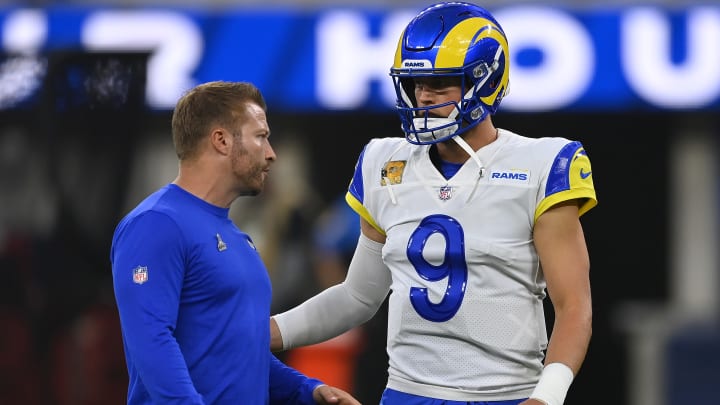
NFL teams have 53 players and twice as many coaches, trainers, and support staff, but to win a Super Bowl you must have two things: an elite quarterback and a superlative coach. The Rams won the Super Bowl last week, with veteran quarterback Matthew Stafford at the helm. This past season was the first year Stafford played for the Rams, after playing most of his career with the Detroit Lions. The Lions are arguably the worst franchise in the NFL. Stafford has always been considered one of the most talented quarterbacks in the league, but never won a playoff game with Detroit. Because of revenue sharing and salary caps, the NFL has more parity than other professional sports. Therefore, the talent gap between teams is not that great. So why does it seem like the same teams are always on the hunt for a championship, and the same teams are usually on the bottom? It comes down to leadership. Leadership in the front office, but mostly leadership with the head coach and the quarterback. The Rams head coach, Sean McVay is one of the youngest and the most successful coaches in the league. He became the Rams head coach when he was 32 years old. He is so widely respected, that in four short years, four of his assistants have been hired by other teams as head coaches including the Chargers 39-year-old head coach Brandon Staley.
Football teams need a lot of things to be successful. They need good offensive and defensive lines, solid special teams play and strong athletes in the skill positions, but exceptional play in all those positions won’t win a championship without elite leadership at the top. Football provides us with an interesting metaphor for business and life. Strong leadership is not only an asset but is imperative to win at any level. A couple of weeks ago, I wrote about leadership and what in my opinion it requires to be a great leader. Some leaders are born, but most are made. The Sean McVay example also shows us that one of the things great leaders do well is grooming and producing other great leaders. Great leaders don’t pontificate; they mentor, coach, and develop talent. They build winning teams and they leave a legacy.
Regardless of political persuasion, most people think the rhetoric of politics has gotten out of control. If you believe that, as I do, there IS something you can do about it. You can ask yourself whether you are helping or hurting the situation. I like to say that there are two types of people in the world: people who add stress and people who relieve stress. I think similarly, some people are adding to the political spectacle in the country, and others are at least trying for something better.
Gary's Blog will return next week.
This past week, the National Association of Realtors invited me to participate in a meeting with the NAR leadership and Jonathan Kanter, the Assistant Attorney General of the United States.
